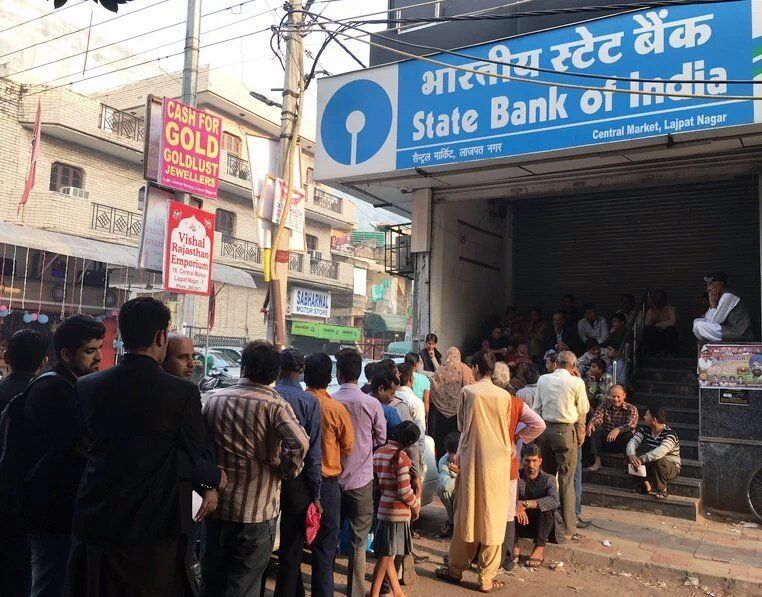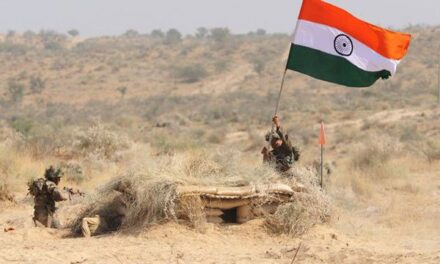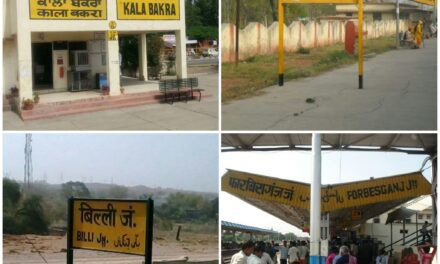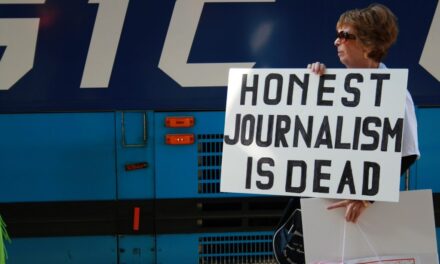From one common man to another: Demonetization didn’t fail you!


Picture Courtesy: Sunil Punk/Twitter
Demonetization hasn’t failed the common man.
Before I begin, you should know that I’m apolitical and hated standing in the line to withdraw cash as much as the next person. I write this as a common man, addressing it to others like me in the hope that it reaches them.
Now back to my point.
Ever since Prime Minister Narendra Modi announced the decision to demonetize the high value currency, the nation has witnessed a wide array of emotions, depending on how it affected each individual personally.
In a nutshell, the ones hiding bundles of unaccounted cash were angry, while those who didn’t have anything to hide saw this as a silver lining. At least that’s what the government expected.
In reality, yes, the corrupt were affected. But, so were the rest. Seldom has a decision affected the wealthy and the needy alike. This, although it shouldn’t have, did.
When demonetization was announced, it left everyone confused at first. A day later, after we had some time to process, many saw it a gutsy move that would go a long way in streamlining our economy. Political rivals panicked, waited.
Then the banks and ATMs opened. The queues formed. The common man realised what he was in for. He was exasperated. The politicians saw an opening. They struck.
The result, a move aimed at curbing corruption and black money is now being touted as a common man’s biggest enemy. Politicians – highlighting the plight of millions, champions of their cause!
Shouldn’t sound ironical, but for some reason, it does.
In all honesty, I lauded the decision on its merit, without caring about the politics of it all. I was glad that there were many like me. But things changed in the last six days, the inconvenience has taken its toll.
Today, I see many like me faltering, questioning the decision. Either because of the frustration brought on by standing in line, the feeling of being cash-strapped or a newly reinvigorated faith in our politicians.
I write this for them.
I confess that I am not an authority on the subject, but I have done my research. Most importantly, I have no vested interest. I just want you to hear me out before you lose faith in the system.
These are questions I had myself, before I embarked on finding the answers. Here’s what I know, now.
Why didn’t the government inform us about their decision to demonetize currency in advance?
From what I understand, if they did, it would have made the decision redundant. The action had to be swift to make it effective. If they had given us even a day’s notice, it would have gone down in history as the day mountains (of cash) were moved.
What could the government have done differently?
From an execution perspective, I can think of a few things like:
* Allowing vendors dealing in essential goods like ration shops, vegetable sellers and others to accept old currency for one more day, provided the transactions don’t exceed a certain limit.
* Restricting the sale of gold, real estate for a period of 24 or 48 hours.
* Keeping the withdrawal limits slightly higher.
* Refilling ATMs with Rs 500 notes before Rs 2,000 ones.
* Making tolls exempt from the beginning, instead of waiting for the situation to worsen and announcing it in evening.
Apart from this, the overall execution was as airtight as it could have been in a country with over a billion individuals.
What about the claims that the government leaked the information to big businesses in advance?
In all honesty, I don’t know if they did. All I know is that rumors often travel faster than facts. So, unless you hear it from the horse’s mouth, don’t believe it’s true.
Moreover, such claims have primarily been made by politicians or those affiliated with them, all without providing a single shred of evidence. So, it’s not the first time a politician has made a bold claim, won’t be the last one.
As citizens, though, it might be in our best interest if we believe them when they offer something to back their claims. Until then, we can either remain hopeful or skeptical, but without giving in to propaganda.
Also, in all fairness, do any of us really believe that a decision of this magnitude could have been kept a complete secret from absolutely everyone?
A handful of people had to know about it days before it was announced. People with families. People whose friends were likely affected. People who just wanted to look out for their own. People who confided in them.
What about targeting Swiss bank accounts, why didn’t the government go after them first?
Short answer: It doesn’t work!
There’s enough evidence about the countless times governments have tried and failed, as Swiss banks are allowed to be secretive in accordance with their country’s law. We can negotiate with them, but never force them to disclose details of account holders.
Simply put, the Swiss banks are fully committed to maintaining their client’s secrecy. It’s why people choose them and what makes them a rather tedious proposition for the rest of the world.
Will demonetization really help the common man?
Let’s understand by looking at numbers first.
According to the World Bank, 25% of India’s wealth is in ‘black money’. That’s over 1 trillion dollars.
Although most of it will be consolidated in the form of real estate, gold etc, even if we take an optimal 10% as cash component, it translates to 100 billion dollars or 6.7 lakh crore rupees.
To put that into perspective, that’s the amount we allocated towards Defence + Consumer Affairs, Food & Public Distribution + Rural Development + Road Transports & Highways + Railways in our current fiscal budget.
Realistically, only a percentage of it will make it to the banks or be brought back into circulation. But, it will increase accountability.
So, even if we take a more pessimistic approach, here’s what I think will happen:
What will surely happen:
* Fake currency notes in circulation will become redundant.
* Funding of terror groups will be severely impacted.
* Corruption and black money will reduce, even if the extent is uncertain.
* More cash will be brought back into circulation.
* Higher deposits and declaration will lead to higher tax collection in current fiscal.
* Millions of Indians who opened accounts under Jan Dhan will bank for the first time.
What may or may not happen:
* In theory, inflation should reduce. But only time will tell if it happens.
* More bank deposits can help in reducing lending rates.
* Price reduction in cash-intensive sectors such as real estate.
What will never happen:
* Not everyone will disclose their undeclared income and pay penalties.
* Not everyone will stop bribing officials or opt for illegal transactions.
Knowing this, you decide.
What about the people who couldn’t get treatment at hospitals, the people who died while standing in queues and countless others who were inconvenienced?
This is my biggest point of contention. Not just against the government, they could have surely done more, but against everyone else.
Yes, demonetization took everyone by surprise. But it didn’t affect everyone equally. It affected the corrupt and needy the most, two groups who are otherwise on the opposite end of the spectrum every time.
For the corrupt, they’ve reaped the benefits for far too long. They’ll survive. For the rest, who were inconvenienced unintentionally, couldn’t we empathize?
Yet, how many of us came forth and helped others with change knowing full well that they need it more than us?
How many doctors and hospital staffers told patients to not worry about change knowing that they were explicitly asked to accept them?
How many just offered our neighbours or friends money or change knowing that we could get it exchanged later?
How many businesses dealing in essential commodities made exceptions for customers who’ve been loyal to them for years?
Many might have, but surely not everyone.
And unless we all did absolutely everything we could for the ones being treated at hospitals, the ones who were standing in lines for hours or the ones who couldn’t afford to buy their daily rations, we don’t get to criticize.
Not others, not the policy and not the government.
After all, everyone was doing what they thought was best for them, irrespective of how it affected others.
The announcement even sent a wave of panic across the country, confusion and chaos followed.
The media, on their part, did everything they could do to help. They informed us about the decision, explained how it would affect us and urged us to remain calm. All of it, in a language we understand and via a medium we have access to.
Despite that, can we all even vouch for the fact that we did everything we could to disseminate correct information?
Today, as citizens, we showcase our patriotism by standing for the national anthem in movie theaters or supporting our armed forces on social media. This was an actual opportunity for us to be patriotic. But I doubt we succeeded.
I’ve seen us more united during a cricket match with Pakistan than we were when it actually mattered.
We should have empathized.
What about the common man though, isn’t he actually unhappy because of this change?
An individual can’t speak for a billion others. But I’ll say this; in India a common man has protested against everything from reservation for castes to railway fare hikes, gender inequality to genocide and corruption to cricket losses.
Therefore, a ‘bad decision’ affecting a majority of the population should be more than adequate to warrant country-wide protests, substantial enough to topple the current government and force the nation into a state of anarchy. But do you see that happening?
Even opposition parties, which can otherwise amass thousands of supporters at a moment’s notice, have resorted to attacking the government in media. What happened to mass protests now?
In the end, the common man, irrespective of who he supports, knows what is best for him and his family. So let’s give him the credit he deserves.
He may not be happy right now, but he knows the pain in temporary. He knows the decision won’t affect him adversely in the long run. He knows he has little to lose.
He also sees the panic on faces of the guilty. He sees them running helter skelter. He sees the government tightening its grip. He knows they have a lot more to lose.
He is seeing the turning of the tide. He has paid his dues. It will soon be time to collect.
This post was contributed by a ‘Guest Author‘. To contribute or share feedback, write to us at editor[@]localpress.co.













